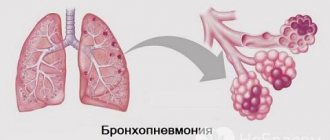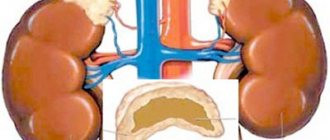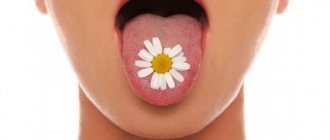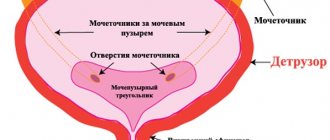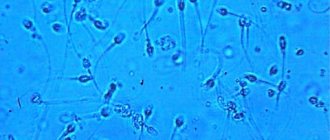In some cases, tremor (shaking) of the hands is a completely physiological phenomenon and goes away on its own.
Its frequent repetition and increase signal disruptions in the normal functioning of the body. Over time, shaking hands become a cause of anxiety, the development of complexes and seriously reduce the quality of life. Silencing this problem and trying to hide it from others does not lead to anything good and, in most cases, only aggravates the problem.
In our article we will try to answer questions about when and why hand tremors should be a reason to see a doctor, and in what cases it is an absolutely normal physiological reaction of the body, we will give tips and recommendations for diagnosis, including at home , and treatment of this pathology.
What it is?
In fact, small hand tremors or tremors, like rhythmic movements of the limbs, or head, or body, can be a feature of physiology and go away on their own. As a rule, such cases are associated with prolonged hand tension and stress.
If the frequency of repetitions of involuntary muscle contractions, and at the same time the intensity, increases, this is a signal that the body is working in the wrong mode. If attention is not paid to the problem in a timely manner, serious pathologies may develop that can seriously reduce the quality of life or even jeopardize its very existence.
Naturally, tremor is a symptom that can occur in a number of diseases; unfortunately, it is impossible to make a diagnosis based on this symptomatic sign alone, but it is definitely worth thinking about and checking yourself. The upper extremities are most often affected by tremors.
Pathological causes of hand tremors
Pathological causes of trembling lie in a number of health reasons. They do not go away on their own over a long period of time and require immediate medical intervention and a thorough examination.
Most often, pathological hand tremors in young or elderly people can be caused by the following reasons:
- Thyroid gland dysfunction. Excessive production of thyroid hormones causes thyrotoxicosis. The level of potassium in the blood decreases, which leads to trembling of the hands.
- Multiple sclerosis. Improper functioning of the immune system affects the membrane of neurons in the brain. More common in young people.
- Parkinson's disease. Dopamine deficiency causes dysfunction of the motor regions of the brain. Unlike multiple sclerosis, this disease mainly affects older people.
- Cerebellar dysfunction. Brain tumors, traumatic brain injuries, and brain surgery can affect the functioning of the cerebellum. Coordination of movements is impaired, muscle tone increases.
- Polyneuropathy. Small blood vessels of the nervous system are affected. There is weakness in the limbs, trembling of the fingers and rhythmic twitching of the muscles. Polyneuropathy accompanies diabetes mellitus, spinal injuries, alcoholism, and poisoning. Vascular pathology can be a hereditary factor that is caused by a genetic metabolic disorder.
It is important to know that the main difference between physiological and pathological tremor is that if in the first case the unfavorable factor is removed, for example, by reducing physical activity or getting out of a stressful situation, then the trembling stops on its own within a very short time.
Kinds
Experts distinguish many types of tremor, among which the following are often diagnosed:
- Physiological. Mainly postural trembling of the limbs or other parts of the body (tremor of the eyelids, neck, lips, etc.). Develops against the background of overwork, chemical poisoning. Physiological clapping tremor often occurs due to prolonged heavy drinking.
- Essential. Kinetic or postural movement of the hands, which is inherited. Over time, a head, vocal cords, lips, tongue, legs, and torso are added to the arms. Sometimes trembling is accompanied by a writing disorder (writer's cramp) and a mild level of torticollis.
- Parkinsonian. A resting tremor that is relieved by movement but worsened by distraction or walking. Although the parkinsonian appearance is characteristic of Parkinson's disease, it sometimes manifests itself in other diseases, for example, with multiple system atrophy. Often observed in the arms, but the chin, lips, legs, and head may be involved.
- Cerebellar. This is mainly an intention tremor, but with multiple sclerosis, postural tremor also occurs, involving the proximal limbs, trunk, and head.
- Mesencephalic (rubral, mesencephalic). A combination of kinetic and postural tremors. This type of disease often manifests itself with damage to the midbrain, less often with pathological processes in the thalamus.
- Dystonic. Diagnosed in patients with focal or generalized dystonia. Characterized by manifestations of asymmetric tremor. It often occurs during a dystonic posture, intensifying when the patient tries to resist hyperkinesis. Decreases during corrective gestures.
- Neuropathic. Postural-kinetic trembling, which occurs with hereditary motor-impact neuropathy type 1, dysproteinemic polyneuropathy, chronic demyelinating polyradiculoneuropathy, porphyritic, uremic or diabetic polyneuropathy.
Physiological reasons
As a rule, hands tremble due to the abuse of certain foods. This includes chocolate, tea, coffee. Caffeine increases the tone of blood vessels in both the heart and brain, which can have a detrimental effect on health. It provokes excitement, a person experiences anxiety, hands shake, and the general condition worsens. If you do not overuse these products, hand tremors will not bother you.
The trigger for hand tremor is cigarette abuse. In advanced stages, alcohol tremors occur, usually in the morning. At the same time, not only the hands shake, but the whole body. Symptoms disappear when alcohol is stopped.
Excessive stress, both physical and mental, can cause tremors. This case implies:
- regular rest;
- taking sedatives;
- reduction of physical activity.
Running, swimming, gym - good for health, but in moderation. Many have experienced hand tremors due to anxiety, depression and stress. At the same time, not only your hands, but also your legs can shake. Here you need to take sedatives or even the help of a psychologist.
An unpleasant situation can also arise when a person takes medication for a disease, and at the same time his hands tremble, sleep and activity are disturbed. Tremors are less noticeable when taking medications. When the drug is discontinued, everything will return to normal. Most often this occurs due to taking antidepressants, lithium, psychostimulants, especially in excess dosage.
By limiting these stimuli, tremor will not appear. However, there are a number of diseases that are accompanied by hand tremors. In these cases, this trouble is pathological in nature, and the underlying ailment needs to be treated.
Hand tremors in older people
Hand trembling in older people can be caused by physiological reasons or indicate pathology. People in this age category have many diseases of various organs in their terminal stages, which are accompanied by tremors. Damage to the thyroid gland, liver, kidneys, and taking certain medications are not all the reasons that contribute to hand tremors. To identify the cause of this symptom in older people, a comprehensive diagnosis is necessary, which will allow prescribing adequate treatment.
Separately, we can highlight hand tremors in people of this age category, which is caused by Parkinson's disease. According to statistics, in most cases it begins to manifest itself at the age of about 60 years. With this disease, the upper limbs can shake even in a calm state, and the fingers make characteristic movements reminiscent of fingering coins or rolling a bread ball.
Shaky hands in older people almost always indicate the need for diagnosis and treatment of an underlying disease.
Symptoms and diagnosis
Tremor is a pronounced pathology, so it does not go unnoticed by the patient. The intensity of the tremors depends on numerous factors. In most cases, patients have shaking limbs and facial muscles. Trembling throughout the body is much less common, but may indicate more serious illnesses.
Signs of pathological tremor:
- the appearance of tremors at rest;
- inability to perform activities of daily living (eg, holding a spoon, tying shoelaces);
- the occurrence of intense tremors after taking alcohol or medications;
- impaired fine motor skills of the hands;
- paroxysmal nature of the pathology;
- increased vibrations when holding a certain position;
- violation of general coordination of movements.
To prescribe an effective medicine for tremor, its cause is first determined. For this purpose, a comprehensive diagnosis is carried out, which includes both laboratory and instrumental examination methods.
Diagnostic procedures include:
- study of anamnesis;
- MRI and CT scan of the brain;
- cardiogram;
- Ultrasound of the heart;
- encephalography;
- general urine and blood tests;
- neurological examination and functional tests.
Treatment is prescribed based on the results of a diagnostic examination. This takes into account the individual characteristics of the clinical picture, the condition and age of the patient.
How to get rid of hand tremors: general recommendations
People suffering from hand tremors should follow these recommendations:
- Avoid stressful situations, learn to remove some problems from yourself, master relaxation techniques.
- Take sedatives of herbal origin (tincture of motherwort, peony, valerian, etc., periodically changing the drug).
- Reduce caffeine intake to a minimum.
- Maintain a normal sleep and rest schedule.
- Quit alcoholic beverages and smoking.
- When tremors appear, pick up something heavy (weighting helps relieve tremors).
- Follow your doctor's recommendations for taking vasodilators, anticonvulsants, antisclerotic, sedatives and tranquilizers.
- Do not self-medicate.
A comprehensive examination and compliance with the doctor’s recommendations is the only correct way out of a situation where tremor prevents you from working productively and leading a normal lifestyle. Unfortunately, it is impossible to completely get rid of some types of pathological tremor, but constant adherence to your doctor’s recommendations will help you significantly reduce the manifestation of this unpleasant symptom and normalize your quality of life.
Drug treatment
First of all, such patients are prescribed antidepressants. They have a calming effect on the nervous system, thereby reducing the severity of tremor. Most often, such drugs are prescribed in combination with B vitamins, calcium and magnesium. This treatment is prescribed for people who develop tremors due to psychological stress or long-term depression.
When severe cases occur (eg, essential tremor), inhibitors are prescribed. Such drugs have a powerful effect on the functioning of the nervous system. Although they help, most of them have many side effects, one of which is dulling of taste buds. If, even after completing a course of inhibitors, no positive dynamics are observed, then specialists prescribe benzodiazepines. Such drugs are not aimed at eliminating the root cause. They only help eliminate attacks of involuntary hand tremors.
Anticonvulsants are also prescribed to treat tremor. They are taken in small doses and can completely cure minor tremors. However, such drugs also have their contraindications and cause various disorders in the body. Therefore, before using them, you should carefully read the instructions.
In any case, you should never take any medications without your doctor’s knowledge. The selection of all medications occurs on an individual basis and largely depends on the cause of tremor and the age of the patient.
Folk remedies
If your hands are shaking and you don’t know what to do about it, then you can use traditional medicine. However, they can only be used if the tremor is caused by severe anxiety, stress or overwork.
To relieve tremors at home, you can drink oatmeal broth. It is prepared in advance, in the evening, as it needs to brew thoroughly before use. To prepare it you need to take 150g of oats and fill it with 2 liters of water. Boil this decoction for several hours.
In the morning, strain the drink and drink it throughout the day. You need to take this decoction for 5 days, after which you should take a short break. If attacks of involuntary hand trembling occur again, the course of treatment with oatmeal broth must be repeated. In addition to oats, herbal decoctions have a positive effect in the treatment of tremor. They are prepared from various herbs that have a sedative effect (for example, valerian root, motherwort or heather).
These decoctions are very easy to prepare. To do this, take 2 tbsp. herbs (optional) and pour 2 cups of boiling water. After which the resulting mixture is poured into a thermos and infused overnight. In the morning, strain the broth and drink it throughout the day.
Treatment
If symptoms of tremor occur, complex treatment is indicated, including medications, psychotherapy methods, and traditional medicine. If tumors, cysts, or vascular spasms are detected during diagnosis, surgical treatment is indicated.
Drug therapy
Depending on the nature of the disease and symptoms, it is recommended to take medications that have different effects on the body. If you begin to shiver due to high temperature, rubbing and taking Panadol or Nurofen are indicated.
Anticonvulsant medications will help reduce the intensity of the tremors. This is Nerontin, Primidon. To reduce the effects of adrenaline, which causes vasoconstriction, tachycardia and increased blood pressure, beta-blockers (Anaprilin, Sotahexil) are prescribed.
Botox is injected to block the nerve ending to stop the tremor. The effect lasts for about 2.5 months, then a new procedure is indicated. This procedure is performed mainly for dystonic tremor.
Benzodiazepines (Nitrazepam, Loprazolam) calm, help relax, restore sleep and reduce the manifestations of seizures.
Tinctures of motherwort and valerian have a sedative effect. They help when you start to shake from nerves.
Additionally, they take anti-sclerosis medications. They reduce the concentration of lipoproteins and prevent the development of atherosclerosis. In this group are Lovastatin, Cholemtyramine.
If the factor provoking tremor is vitamin deficiency, vitamin therapy is indicated.
Surgery
Prescribed when neoplasms, pathological narrowing of blood vessels, and the formation of cholesterol plaques are detected. Tumors are removed and stents are installed to widen the vascular walls. If blood clots are present, they are removed through vascular incisions by suction or injection of a softening agent.
Essential tremor, accompanied by significant impairments in vital activity, is an indication for implantation of electrodes into the brain, which produce impulses aimed at reducing tremors.
Physiotherapy
The main goal of physiotherapy is to relax and reduce muscle tone. Massage and acupuncture are recommended.
Psychotherapy
For psychogenic tremor caused by emotional stress and phobias, psychotherapy methods are prescribed. They allow the patient to discover the cause-and-effect relationships of the pathology, calm down, build ways to protect themselves from traumatic circumstances, and relieve the tremors in the body that appear during neurosis.
Depending on the characteristics, causes of the pathology, and age of the patient, family therapy, art therapy, and other techniques are carried out.
Folk remedies
Recipes created based on the beneficial properties of plants help you calm down and perceive what is happening less acutely.
A collection of motherwort herb (3 parts), chamomile flowers, cudweed stems, mint leaves, one part each, mixed with valerian roots, hawthorn fruits, taken 2 parts each. Boil everything for five minutes, then leave for an hour and a half in a thermos. The resulting infusion is taken 100 ml three times a day half an hour before meals. The duration of treatment is a month. Repeat the course after 10 days.
Beetroot juice will relieve nervousness. Place it in a dark place for three hours, add honey in the same amount and stir. Drink 160 ml of the product per day thirty minutes before meals. Take this juice for a week.
Prevention
These tips are suitable for preventing tremors and look like this:
- Minimizing stressful situations. You need to try to remove problems from yourself, abstract yourself and control your emotions.
- Taking herbal-based sedatives. A few drops of motherwort or valerian tincture will help cope with stress without side effects or harm to health.
- Normalization of nutrition. It is necessary to reduce the consumption of caffeine and sugar-containing products to a minimum.
- Rejection of bad habits. It is obvious that drinking alcoholic beverages and smoking provoke a number of serious diseases. Do not forget that tremors can occur against the background of alcohol withdrawal.
- Sports activities. An active lifestyle helps prevent not only tremor, but also many diseases. But you need to exercise wisely: with heavy physical activity you can often get the opposite effect.
Following these recommendations will help prevent tremors. At the same time, do not forget that if a symptom is detected, you should not self-medicate. The sooner you see a doctor, the sooner you can cope with the disease.
